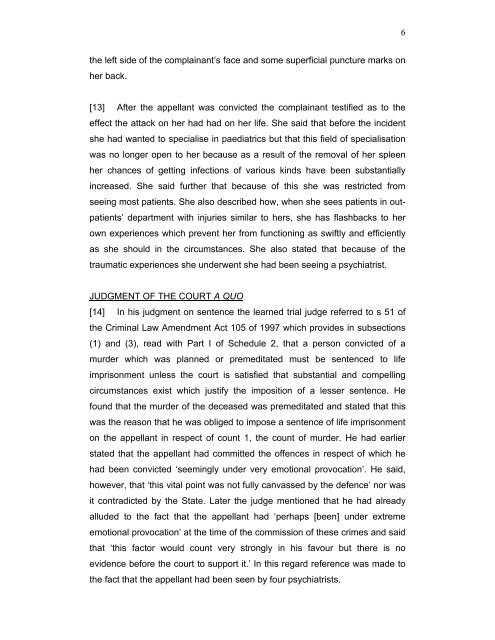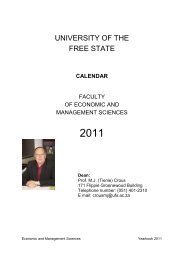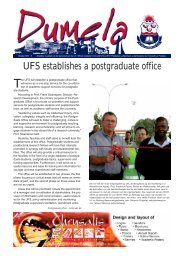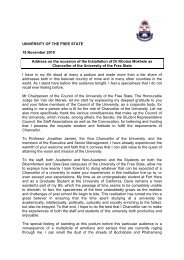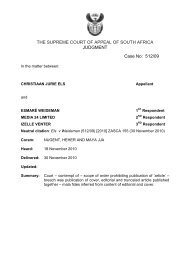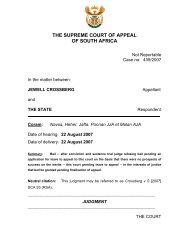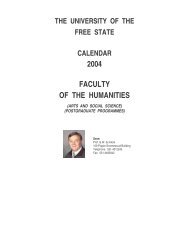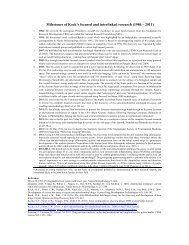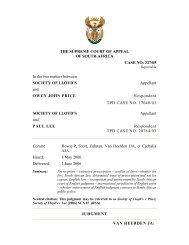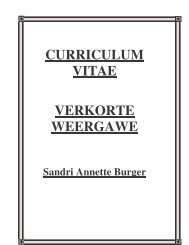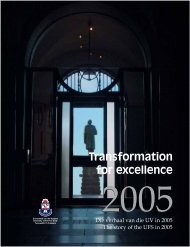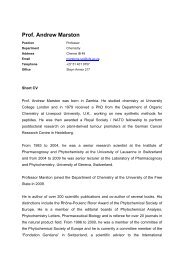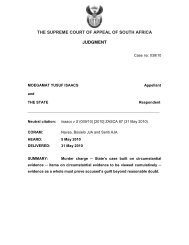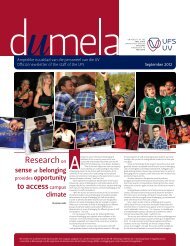THE SUPREME COURT OF APPEAL OF SOUTH AFRICA
THE SUPREME COURT OF APPEAL OF SOUTH AFRICA
THE SUPREME COURT OF APPEAL OF SOUTH AFRICA
- No tags were found...
Create successful ePaper yourself
Turn your PDF publications into a flip-book with our unique Google optimized e-Paper software.
6the left side of the complainant’s face and some superficial puncture marks onher back.[13] After the appellant was convicted the complainant testified as to theeffect the attack on her had had on her life. She said that before the incidentshe had wanted to specialise in paediatrics but that this field of specialisationwas no longer open to her because as a result of the removal of her spleenher chances of getting infections of various kinds have been substantiallyincreased. She said further that because of this she was restricted fromseeing most patients. She also described how, when she sees patients in outpatients’department with injuries similar to hers, she has flashbacks to herown experiences which prevent her from functioning as swiftly and efficientlyas she should in the circumstances. She also stated that because of thetraumatic experiences she underwent she had been seeing a psychiatrist.JUDGMENT <strong>OF</strong> <strong>THE</strong> <strong>COURT</strong> A QUO[14] In his judgment on sentence the learned trial judge referred to s 51 ofthe Criminal Law Amendment Act 105 of 1997 which provides in subsections(1) and (3), read with Part I of Schedule 2, that a person convicted of amurder which was planned or premeditated must be sentenced to lifeimprisonment unless the court is satisfied that substantial and compellingcircumstances exist which justify the imposition of a lesser sentence. Hefound that the murder of the deceased was premeditated and stated that thiswas the reason that he was obliged to impose a sentence of life imprisonmenton the appellant in respect of count 1, the count of murder. He had earlierstated that the appellant had committed the offences in respect of which hehad been convicted ‘seemingly under very emotional provocation’. He said,however, that ‘this vital point was not fully canvassed by the defence’ nor wasit contradicted by the State. Later the judge mentioned that he had alreadyalluded to the fact that the appellant had ‘perhaps [been] under extremeemotional provocation’ at the time of the commission of these crimes and saidthat ‘this factor would count very strongly in his favour but there is noevidence before the court to support it.’ In this regard reference was made tothe fact that the appellant had been seen by four psychiatrists.


